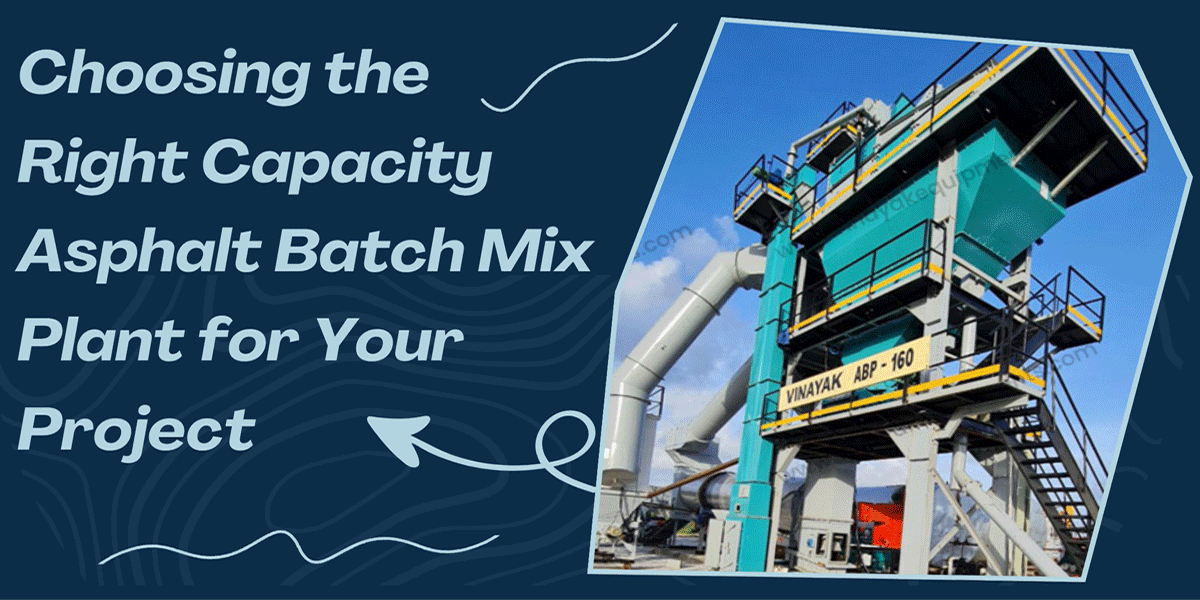 Email Us: sales@vinayakequipments.com
Email Us: sales@vinayakequipments.com  Call Us: +91 9879430770
Call Us: +91 9879430770
decisions is choosing the right capacity Asphalt Batch Mix Plant. This isn't just about finding a machine that fits your budget—it's about ensuring you can meet project timelines, maintain quality, and minimize operational costs.
An asphalt batch mix plant is a machine that produces asphalt mixtures by combining aggregates, sand, filler, and bitumen in specific ratios. Unlike continuous mix plants, batch plants produce asphalt in discrete batches, offering better control over mix quality.
These plants come in various sizes and configurations, and the capacity is usually measured in tons per hour (TPH). The right capacity depends on several factors, which we’ll cover in detail below.
Selecting the appropriate asphalt plant capacity is crucial for several reasons:

Choosing the right capacity isn’t a one-size-fits-all approach. Consider the following:
Larger projects typically demand higher output to meet deadlines. If you’re working on a highway or expressway, a plant with over 160 TPH might be necessary. For rural road upgrades, a 60–80 TPH plant could suffice.
Calculate your required output per day. If your project requires 1,000 tons of asphalt per day, a 100 TPH plant running for 10 hours could be ideal.
If your company handles multiple projects at once, consider a medium-to-high capacity plant or even multiple smaller plants strategically placed.
Higher capacity plants are physically larger. Ensure you have enough space for setup, raw material storage, and operations.
A higher capacity plant typically means a higher upfront cost. But consider long-term ROI. A smaller plant working double shifts may cost more in the long run than investing in a higher capacity setup.
Stationary Plants :
Mobile Plants :
Choosing the right capacity asphalt batch mix plant is a strategic decision that can make or break your project timelines, budget, and overall efficiency. By assessing your project’s specific requirements, future growth plans, and environmental obligations, you can select a plant that not only fits today but grows with you tomorrow.
Remember, it’s not just about buying a machine—it’s about investing in your company’s capability to deliver high-quality, on-time, and cost-effective infrastructure projects. Take the time to evaluate all factors, and you’ll be well on your way to making a smart, profitable decision.